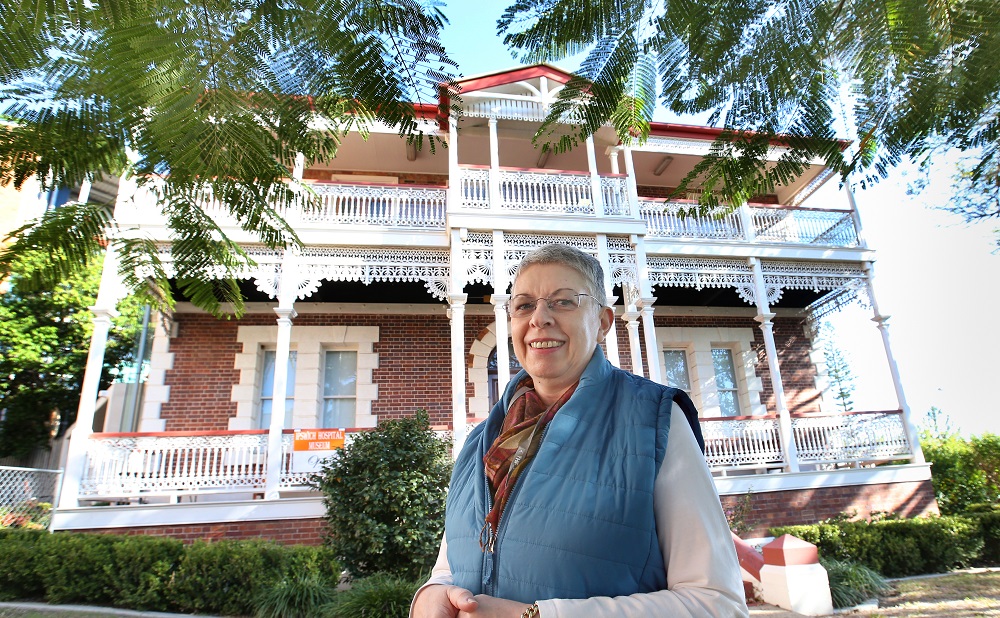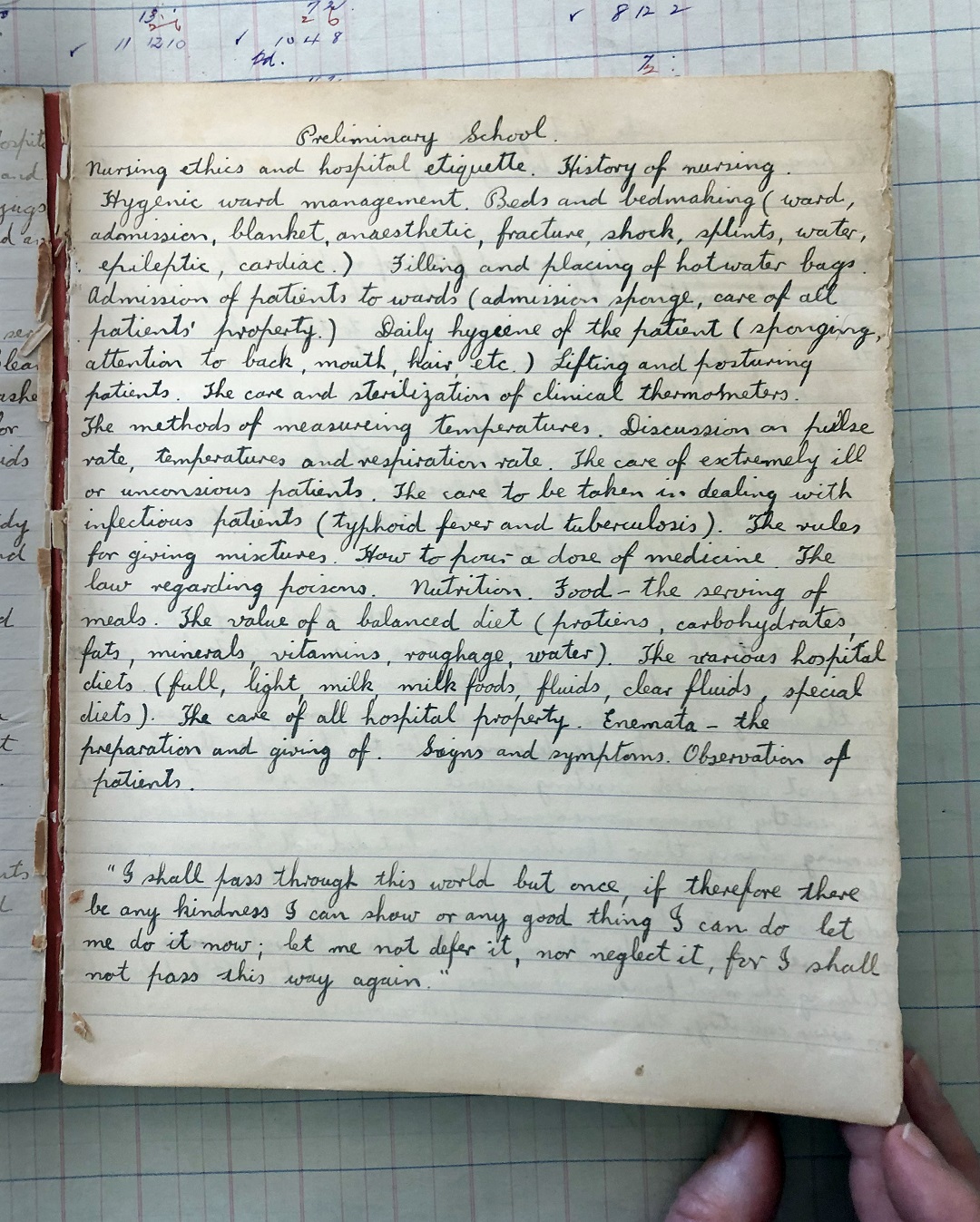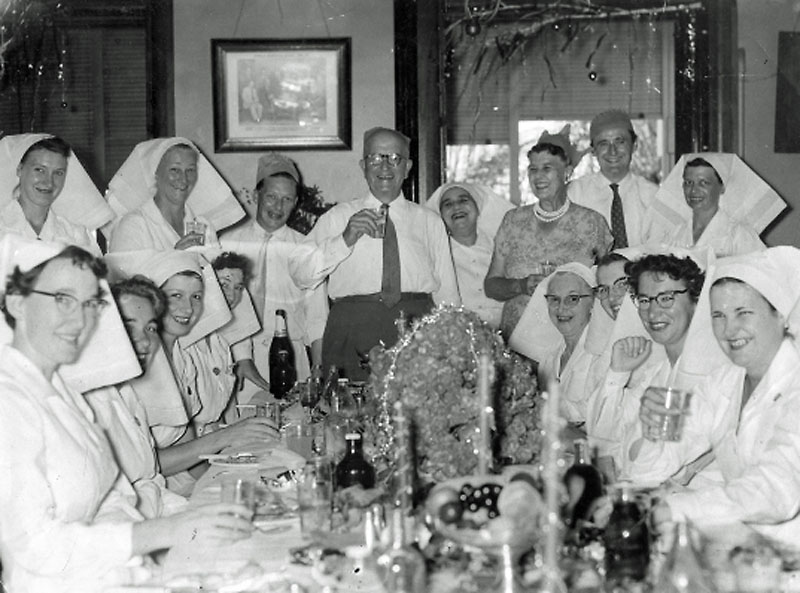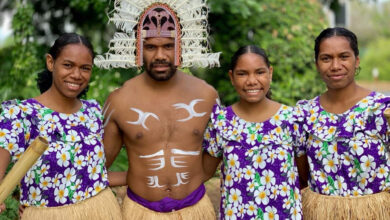Nursing has drastically evolved over the past century.
Today nurses are highly trained health care professionals involved in all areas of the health care industry.
In the 1950s, about 70 years ago, nursing was taught at a preliminary school before a nurse’s training was completed at the Ipswich Hospital.
Ipswich Hospital Museum researcher Jane Kingston said the museum was recently donated a training diary written by trainee nurse, Iris Eggins, who commenced her training in 1956 when she was 23-years-old.
Iris’s daughter, Sue Haag, found the diary amongst her things after Iris passed away, so the Nugent family donated the book to the Ipswich Hospital Museum.

Ipswich Hospital Museum researcher Jane Kingston
Her diary is filled with her duties as a nurse as well as what is expected for hospital etiquette and rules.
What strikes Ms Kingston is how different the expectation was of nurses in regards to being answerable to the doctor above and beyond even the matron.
Nurses were trained to obey all instructions from the doctor, even if the nurse believed them to be a mistake.
“Iris writes that ‘a nurse’s first duty is obedience and it should be absolute and unquestioned’,” Ms Kingston said.
“The doctor had all the power but nowadays the doctors and nurses work in a more open manner.”
The diary lists the duties of an average day, which was a 12 hour shift.
The trainee nurse’s shift would begin at 6am, she was to be unmarried and live at the hospital.
6am: Prepare nurse’s morning tea and sister’s tea tray, cut bread and butter and set up day room for patient’s breakfast.
Give out water jugs and tumblers. Sputum mugs to be collected, cleaned and boiled, see mouth toilets.
7am: Own breakfast
7.30am: Patients breakfast, see to patient’s tea, saucers always served with cups.
Collect breakfast dishes, scrape and stack tidily. Clean food trolley, wash and polish with Bon Ami.
Bandages to be washed and boiled and hung on clothes horse. Prepare orange drinks for patients.

Drinks to be prepared hourly for those on hourly fluids. Prepare morning teas.
10am: Take 10am temperatures. See to patient’s morning tea. Tidy dayroom and cupboards, linen and blankets. Attend to mouth toilets.
11am to midday: Give out cutlery for patient’s dinner, serve and give out sweets. Collect dinner dishes. Attend to back toilet
1pm to 2pm: Balcony patients and see to balcony washes.
2pm: Temperatures and Bis Die Temps. Nurses afternoon tea. Prepare dayroom for tea. Cut bread and butter. Give out to patient’s tea – use saucers, collect dishes and stack tidily. Clean trolley.
6pm: Temperatures. Balcony washes and back toilet of these patients. Mouth toilets, patient’s supper, tidy day room. Count cutlery and report same. Total fluid charts, tidy pan room and bathroom. Assist other nurses wherever possible.
The diary provides a really good insight not only into the day to day expectations of a trainee nurse working in the 1950s, but also shows the level of activity that was required to keep instruments sterilised, medicines made up and food served.
Mrs Kingston said Iris was required to know how to make a hospital bed in nine different ways depending on the needs of the patient.
“She had to know how to make a bed for a general ward admission, blanket bed, anaesthetic bed, for fracture patients, shock, splints, a water bed, epileptic bed and cardiac bed,” she said.
There was so much a nurse would have to learn that is taken for granted these days.
“So much of her time was spent sterilising and cleaning, which are not required today because of disposable packs or done by a central department within the hospital and with the serving food,” Ms Kingston said.
“She was required to make saline solution from scratch, these days you just grab one off the shelf.
“I love that on the bottom of the first page of the book, she wrote her motto. I can imagine her walking the halls of the hospital with this training guide in her arms.”
I shall pass through this world but once if therefore there be any kindness I can show or any good thing that I can do let it be me to do it now let me not defer it or neglected it for I shall not pass this way again.


